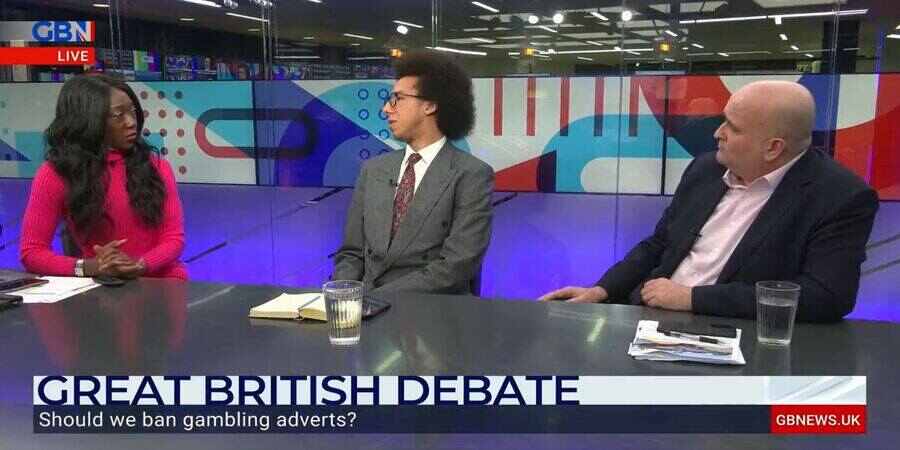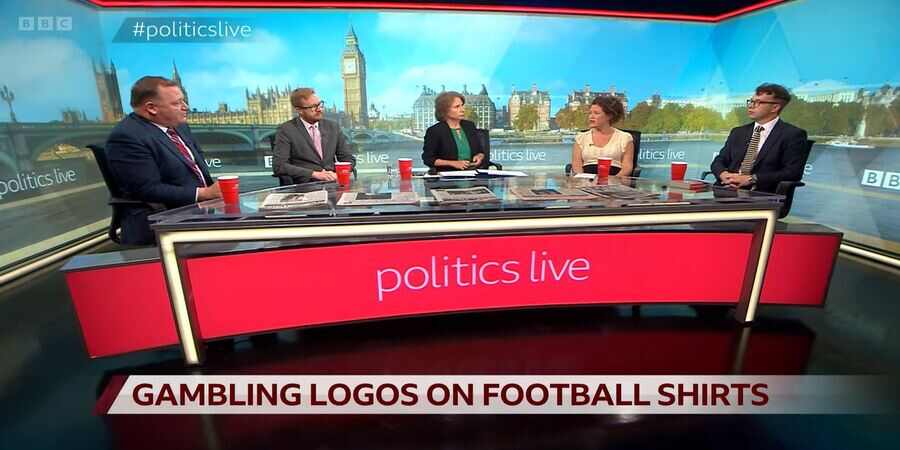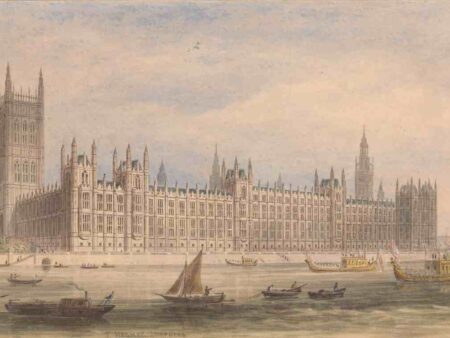By Jon Bryan | Expected reading time 6 mins
Last Updated: October 29, 2023

One focus of the UK government’s review of gambling is to look at various aspects of online gambling. But why do so many people appear to have an issue with it? Writing for www.slotshawk.com, gambling writer Jon Bryan examines what’s going on.
There is a strange phenomenon when it comes to using the internet for gambling – some pundits and politicians have a real problem with it. It’s a problem that they don’t seem to have with the use of that technology in other areas of life. Online shopping for clothes and food get the occasional grumble from commentators about the impact on town and city centres, but that’s not what happens with discussions about betting on the internet. Why do some people have such an issue with online gambling?
With all technologies and significant changes in society, there can be a degree of suspicion and concern. There are those who even call for the status quo to be maintained, sometimes being derogatorily referred to as ‘Luddites’. Occasionally, a nervousness around change takes place, and we see the emergence of the precautionary principle – the idea that you should be wary about things that are new and that perhaps we don’t fully understand or appreciate. ‘Let’s just leave things the way they are’, is the way that this is often expressed. The public conversation about the internet has had people expressing concern over the years, but the benefit of being able to do things online became very apparent during the coronavirus pandemic, and even before then. So why the obsession with online gambling? It only ever seems to be seen in a negative light.
A CONCERN WITH GAMBLING PER SE
Many of those who raise concerns about online gambling have a problem with all forms of gambling, whether that’s bookies, casinos, bingo halls, buying lottery tickets, playing poker or slots – online or off. If you want to introduce restrictions on the ability of the public to bet, using the internet as a proxy for doing so is a logical step. If you have concerns about people betting, and are wary about what you can do on the internet, the spectre of an increase in online gambling hits both of those misgivings that some people will have.

Online gambling has existed for some time. The first online casino was launched in 1994, and I recall playing poker on the internet in the mid-noughties, so this is not a brand new development. But the fixation that a number of people have with online gambling does seem to be relatively new. In some ways, it was inevitably going to be the next target of anti-gambling campaigners after changes to Fixed-Odds Betting Terminals (FOBTs) were introduced in 2018/9. Once they had managed to restrict betting in one area, campaigners soon turned to something else to pursue their dislike of gambling. Betting online became the new target, with the Labour MP Carolyn Harris calling it the ‘unregulated wild west’, and making clear the trajectory for those who wanted to continue with restrictive gambling reforms:
“‘We intend to go after the online companies just like we did with the fixed odds betting terminals’ Harris stated in 2019.
Carolyn Harris may be a back-bench Labour MP well known for her views on restricting gambling, but she is not an insignificant voice. She is the Deputy Leader of Welsh Labour, a former parliamentary private secretary to Sir Keir Starmer, and has had various shadow ministerial roles. The rather sinister way that she talks about going ‘after’ online gambling is a clear illustration of her views about gambling, and, by implication, those of us who gamble as well.
TARGETING ONLINE GAMBLING
Politicians like Harris have always had online gambling in their sights, so the lockdowns in 2020 were a boon for campaigners like her who wanted to have a go at online betting. With all the government imposed restrictions on public life, it was obvious that if you wanted to place a bet you were going to have to use the internet. This was a chance for some campaigners to grasp the opportunity to have yet another go at gambling. Within days of the UK lockdown in March 2020, an All Party Parliamentary Group was calling for limits on what we could gamble online.
Complaining about ‘temptations’ and that people would have ‘extra time on your hands sat at home’, Harris moaned about the consequences of lockdowns and wanted to limit what we should be seeing and doing when it came to how we might spend our leisure time. The nature of lockdowns meant that we had a lot more leisure time – which we had to spend almost exclusively indoors. Not content with us just being locked in our homes, Harris clearly felt the need to restrict us even more.
A month later, Harris continued to raise concerns about the increase in online gambling. It was almost as if she (and others) had failed to follow the logical steps that were occurring. If you effectively close down society and prevent the public from leaving their home unless they have a valid reason, the use of the internet for a variety of everyday tasks is bound to increase. So online gambling was always likely to rise, even if that level of increase did not fully replace the overall amount of gambling taking place pre-lockdown. The cessation of gambling in bookies, casinos, bingo halls, and other places that were shut, was never going to totally move online: that’s not how gamblers behave. But a rise in online gambling was always on the cards during the pandemic. Had it not risen, now that actually would have been a surprise and a story worth writing.
It isn’t just some Labour MPs like Carolyn Harris who have a problem with online gambling: former Conservative Party leader Sir Iain Duncan-Smith has a similar take. The two of them decided that as smoking was so unpopular, it would be a good idea to try and fool us that the two are comparable, in a piece they wrote for The Times under the title ‘Online Gambling is the Tobacco of Our Age’.

One of their lines is that ‘Harmful products should be regulated’, a line often repeated by politicians and the commentariat about gambling, especially those who want to see more restrictions. In many ways, there is nothing wrong with such a phrase, but it is repeated to try and give the impression that betting is not currently a regulated activity. Quite obviously, it is. In fact, a large part of their article is about current aspects of the regulation of gambling, albeit that they think things could be done better. But the continual use of that line by the gambling reform lobby gives the impression that it’s like the ‘Wild West’ when it comes to online gambling. Just saying phrases like ‘unregulated’ and ‘Wild West’ give the reader a particular impression, which they don’t have to back up with any evidence or detail.
Harris and Duncan-Smith attempt to latch onto the unpopularity of smoking in their article, by likening online gambling to tobacco. Two senior politicians assume the public are too lazy to look at the data and detail about gambling, so they say it is the same as smoking, hoping that the unpopularity of one will rub off onto the other. It is quite striking that, in spite of the headline of their piece, they make no attempt at making a proper comparison and drawing out any similarities between the two activities. By asserting parallels between online gambling and smoking, there is an assumption of guilt by association. They hope that we will simply agree.
THE UNCOMFORTABLE TRUTH ABOUT GAMBLING FOR CAMPAIGNERS
Perhaps there are good reasons why that comparison was not made: it could lead to questions that Harris and Duncan-Smith have some discomfort and difficulty in answering. Even the simplest of comparisons would show no health benefits associated with smoking, but that is not the case with gambling. Last year, a government review of evidence pointed out the link between gambling and positive levels of health: ‘The highest levels of gambling participation are reported by people who have better general psychological health and higher life satisfaction. And people who have poorer psychological health are less likely to report gambling participation.’
These findings do not fit well with politicians who wish to restrict gambling, which is why they are not highlighted by those at the forefront of gambling reform. The same point about health and gambling was made on Racing TV earlier this year. Dan Waugh from Regulus Partners pointed out: ‘We know from research that people who gamble without problems tend to have better mental health than people who don’t gamble’.
These might be uncomfortable truths for some, but they cannot be ignored. Perhaps this is why there is an attempt to continually compare harm from online gambling with harms from smoking, but without the evidence for us to see the comparison. When considering how to challenge these claims about the similarity of tobacco and online gambling, I expected to look in detail at what was being said. In reality, there was nothing there. Assertions are made without any evidence, and we are just expected to believe what is claimed. We need to question what is being said, but also provide an alternative narrative – one that is honest about gambling when there are positives to report. This is particularly the case with discussions about the levels of problem gambling, which has been in decline of late. Unfortunately, those who wish to restrict gambling, seem not to take anything positive from those figures.
THE CONTINUING DECLINE IN PROBLEM GAMBLING
There is a difference between gambling in general, and gambling that may cause harm, or lead to problem gambling. These distinctions are important. Too often it is claimed that all gambling is harmful, and that it is always harmful for everyone. Such claims are not based on any evidence. Only 0.2% of the adult population are categorised as being problem gamblers, meaning that the vast majority are not. Although these figures continue to be contested by some, official data continues to show a decline in problem gambling, which you would think campaigners such as Harris and Duncan-Smith might be pleased to see. The last few years has seen a number of changes to legislation and practices, which in turn has seen a welcome decline in the problem gambling rate. Sadly, it seems that for some in the gambling reform lobby, some positive news from official statistics is never going to be good enough. Their crusade against online gambling continues regardless.
It is not just Harris and Duncan-Smith who seem to have an issue with web-based betting, there are other campaign groups with similar ideas. One of these is Clean Up Gambling (CUG) a campaign to introduce more restrictions on online gambling. Set up in the first UK lockdown, CUG has a number of aims, but a key focus is to restrict gambling online, and ban all online sponsorship, advertising and promotions. While the aim of this group seems largely to be targeted at the gambling that takes place on the internet, it may not stop there. It would be a surprise if non-internet based gambling was left alone in the long run, by groups such as CUG.
CALLS FOR AN OUTRIGHT BAN
It is quite surprising that almost all of the focus against gambling at present is about it being carried out online. Earlier this year, one TV and Radio presenter even called for a total ban on gambling online by announcing in a discussion that: ‘Gambling should be banned from the internet’. This rather bold demand came during an item on GB News on gambling and advertising. Calvin Robinson made it quite clear that when it came to the use of the internet for gambling, he favoured prohibition.

One of the unusual aspects of his argument is that Robinson had earlier made it clear that he ‘doesn’t do banning’, but is seemingly willing to make an exception when it comes to online gambling because the internet ‘is a dangerous place’.
THE LACK OF A SENSIBLE DISCUSSION
There could be a fairly sensible discussion about the types of gambling which might be problematic or harmful, or where there needs to be distinctions drawn between what happens in the regulated and unregulated market. However, the standard of debate about gambling is so poor that everything just gets lumped in together. Often, the only thing that the discussion leads to is an approach where the conclusions drawn are along the lines of the placard made famous by Father Ted.
A poor level of informed debate is sometimes evident in even the best of politics shows on TV. One of the better programmes for political scrutiny and discussion is Politics Live on BBC2. This regular show will often have very thoughtful, knowledgeable and esteemed politicians, journalists and commentators on their panels, to address the questions of the day. I therefore hoped that when they addressed this subject, the level of analysis and comment would be better. Sadly, during a recent episode the presenter posed a question about gambling with an assumption built into it: ‘Online gambling is a particular issue and it is different, isn’t it?’ to which the Financial Times’s Sebastian Payne instantly agreed. The problem with this instantaneous commentary is that no differentiation is made between different types of gambling at all. If it is online, it must be bad, is the level of analysis taking place. You can watch the discussion by clicking here: and I have discussed other aspects of it in a previous article for SlotsHawk discussing the upcoming gambling review.

LOOKING AHEAD TO THE FUTURE
I can’t think of another area of life where judgements and assumptions about the use of technology are made in the way that they are about online gambling. Conjecture is taken as fact, and normal standards of logical thought seem not to apply. The views of politicians and commentators that I have referred to are likely to get a widespread audience in the coming months of the gambling debate, even those who make assertions that contain no shred of evidence. This is a real concern for what might emerge from the government’s review of gambling.
Indications from leaks about the content of the White Paper point to bad news for every type of online gambling. Such a blanket approach to an issue is not going to be a helpful way forward. Nuance and attention to detail are sadly missing in this whole debate, and which are needed when it comes to thoughtful interventions.
It will be up to us to question and challenge the dominant voices in the gambling debate over the coming months. We should start by saying that online gambling should not automatically be seen in a negative light, and that comparisons with products like tobacco are way off the mark. And we should not be afraid to talk about the positives about gambling, especially where data clearly shows that to be the case.
Jon Bryan is a Gambling Writer and Poker Player.
Follow him on Twitter: @JonBryanPoker







